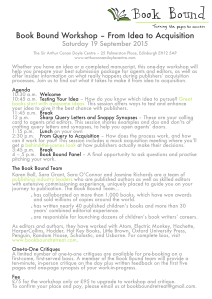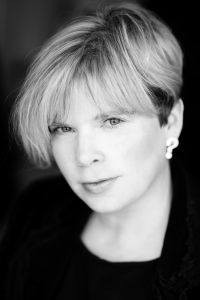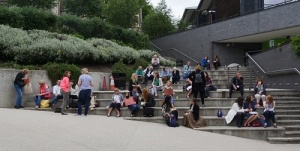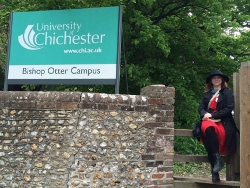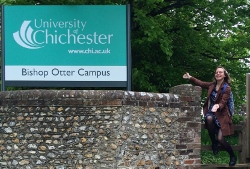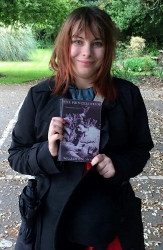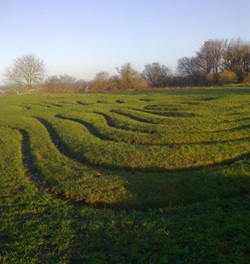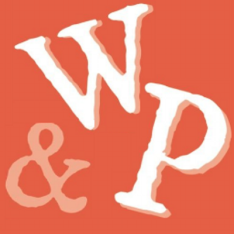
On Meeting an Agent by Janey L Foster
So you know how it goes – festival folder clutched to your chest, like a shield, like a prized possession. And your lanyard flips and shines in the sun as you walk with purposeful steps to the first appointment. It’s quiet and you’re early but the space is good for the nerves. You nod to guides and helpers but you know where you’re going. Your shoes click the stairs as you throw out a knowing smile to a delegate coming back down. At the desk you announce yourself to the fluorescent pens and spreadsheets with your hope fuelled confidence that hides the butterflies under your dress.
And you wait.
And you wait with the others. The collection of faces from other towns with tales of train journeys, told to ease the minutes as they ticked. You rearrange papers because just one more shuffle wouldn’t hurt, you swing your shoe on the tip of your toe letting the through draft cool your heel.
And you’re all there, waiting with your words, fine tuned and formatted; your stories about to lay bare.
You stop waiting.
You’re summoned in. In polite procession with brief eye contact and ‘good lucks’ you find your place, with a table in between you and the tension of a delivery room, you wait for the words from the agent’s mouth.
And you’re grateful for the handshake and the smile, the warmth of a human touch, as she does her job with enthusiasm and passion from the other side of the tracks. Her phrases tumble out and swirl around you, her thoughts and her notes and more smiles. You hear yourself go up a gear as your own words find their order and your characters sit on your shoulder, whispering into your ear. And for a number of moments there is just the connection, not minutes on a clock. And you want to hold the moment, let the world in your head burst through and dance in between you on the table, over her notes and up her sleeves. Miniature protagonists in all their time-lines and their glory, weaving and spinning golden threads around her till she’s bound and laced into the plot. And you listen, just outside yourself, to her suggestions and you talk and you laugh and you buzz.
Time breaks through and you wind up. Other sounds and people fade in and fill out the edges as your awareness seeps back into the room. The handshake again, the smile, the thanks
…and The Request: You get a second date.
You leave. You seem to move just above the carpet, You beam at the girls in yellow but can’t stop. You have to move, to almost run and the stairs turn to silk under your fast feet. You’re back out in brightness with her voice in echoed ripples in your head.
You want to grab your protagonist’s hand and dance until your feet crumble into the earth. You want to shout, you want to burst.
But you don’t. You walk with purposeful steps, you find a quiet place and you tap. You fill your Notes App with the words and her comments. You think and you plan and you beam.
Delegates come and go around you. Doors close, the chatter muffles and you find a bin for your coffee cup.
Your next appointment is due. You gather yourself back up, clutch your festival folder to your chest and head back. Lanyard fluttering in the stark sunlight up to familiar steps and the plastic seats and the wait.
It’s summer. You hold onto your protagonist’s hand – you have journeys ahead.


